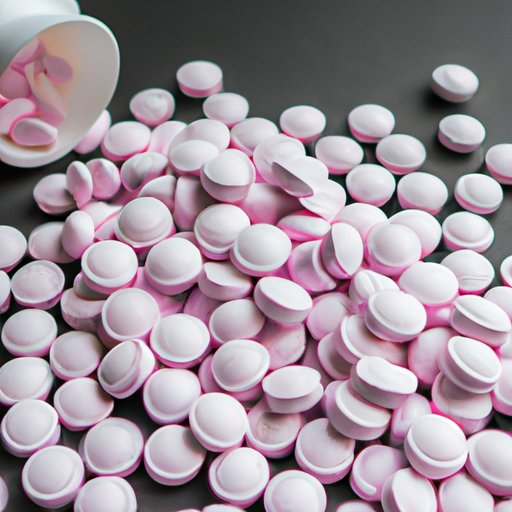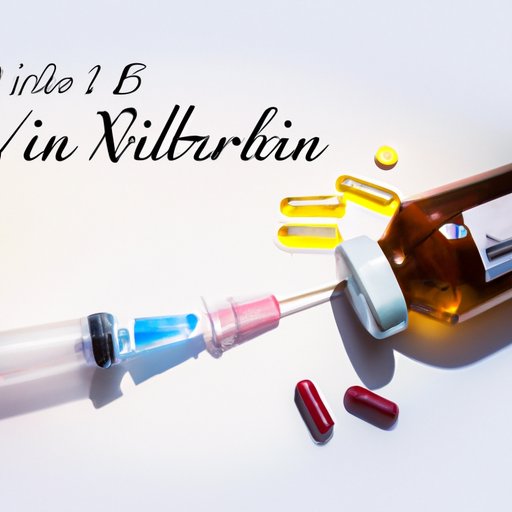
I. Introduction
Bilirubin is a yellow-colored substance that is produced by the breakdown of red blood cells in the liver. While bilirubin is a normal part of the body’s metabolism, high levels of bilirubin can be a sign of underlying health problems and can cause complications if left untreated. In this article, we will explore various approaches to lower bilirubin levels, both through natural and medical means.
II. Understanding the Causes of High Bilirubin Levels and How to Manage Them
High bilirubin levels can be caused by a range of factors, including liver damage, certain medications, and inherited conditions. Bilirubin also tends to be elevated in newborns, who have not yet fully developed their liver function. If you believe that you may have high bilirubin levels, your doctor can perform a series of blood tests to diagnose the condition. Treatment for high bilirubin levels will depend on the underlying cause of the condition.
III. Incorporating Diet and Lifestyle Changes to Lower Bilirubin Naturally
In some cases, making changes to your diet and lifestyle can help to naturally lower bilirubin levels. Foods that are high in antioxidants, such as berries, leafy greens, and citrus fruits, may be particularly beneficial for reducing bilirubin. Other tips to lower bilirubin naturally include exercising regularly, avoiding alcohol, and managing stress.

IV. The Role of Medications and Supplements in Lowering Bilirubin
There are several medications and supplements that can be used to lower bilirubin levels. For instance, a medication called ursodeoxycholic acid (UDCA) can be helpful for certain types of liver diseases that cause high bilirubin levels. However, some of these medications and supplements can have side effects, and it is important to work with your doctor to find the right approach for your individual case.
V. Exploring Alternative Therapies for Lowering Bilirubin, such as Acupuncture or Herbal Medicine
Some people may be interested in using alternative therapies such as acupuncture or herbal medicine to lower their bilirubin levels. While there is limited research on the effectiveness of these therapies, there is some evidence to suggest that they may be helpful in certain cases. Expert opinions from practitioners of these therapies can also provide valuable insight into the potential benefits of these approaches.
VI. Using Phototherapy or Light Therapy to Lower Bilirubin
In certain cases, phototherapy or light therapy can be used to lower bilirubin levels, particularly in newborns who are experiencing high bilirubin levels related to jaundice. During phototherapy, a baby is placed under a special light that helps break down bilirubin in the skin. However, there are some risks associated with this treatment, such as dehydration, and it is important to follow your doctor’s advice to ensure that phototherapy is used safely.
VII. Understanding the Connection Between Bilirubin and Liver Health
The liver plays a critical role in regulating bilirubin levels in the body. When the liver is damaged, it is less able to process bilirubin, which can lead to high levels of the substance in the blood. Maintaining good liver health is therefore an essential component of overall health and can help to prevent complications related to high bilirubin levels.
VIII. When to Seek Medical Attention for High Bilirubin Levels and Treatment Options
If you have high bilirubin levels, it is important to work closely with your doctor to monitor your condition and determine the best course of treatment. In some cases, complications related to high bilirubin levels can be serious and require immediate medical attention. Treatment options may include medications, supplements, lifestyle changes, or in more severe cases, surgery.
IX. Conclusion
Lowering bilirubin levels is an important part of maintaining overall health, but it can be a complex process that requires careful attention and management. Whether you choose to pursue natural or medical remedies, working closely with your doctor and following their advice is key to achieving the best possible outcomes. By maintaining good liver health and making positive lifestyle changes, you can reduce your risk of developing high bilirubin levels and improve your overall quality of life.
If you are concerned about your bilirubin levels or are experiencing symptoms related to high bilirubin, be sure to speak with your doctor to find the best course of treatment for your individual needs.





